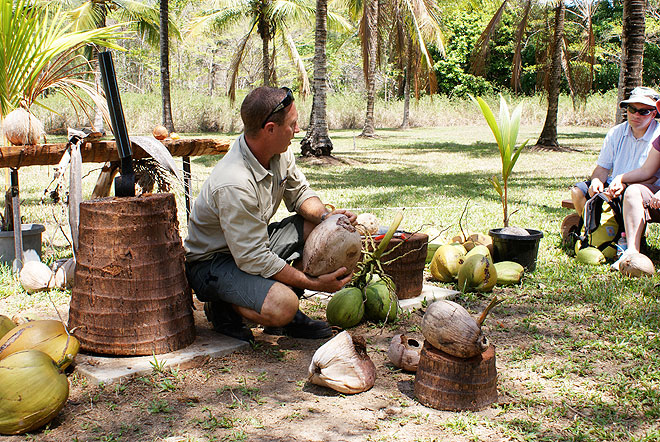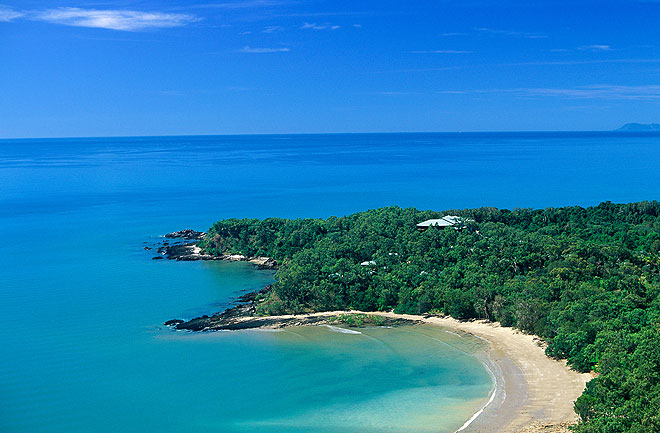Ecotourism is the now the fastest growing sector of one of the world’s largest industries. That’s a pretty big claim, but what exactly is ecotourism, who are all these eco-tourists and what are they looking for?
For eco-tourists, travel is more than staying at a hotel, taking pictures and buying souvenirs. When executed mindfully, eco-travel can inspire cultural awareness, tolerance, and a commitment to protecting the environment.

Above: Guests receiving an educational talk on the benefits of coconuts at Thala Beach Lodge.
There are several myths surrounding ecotourism that are increasingly debunked as travellers experience the reality. One of the more common misconceptions is you would have to sacrifice luxury, or even comfort to have an ecotourism experience. Today, many lodges and hotels marry luxury with a certified eco experience and the good news is this is the end of the market that is growing at an exponential rate.
While the term ‘eco’ has been overused and even exploited, there are some safeguards that can guide tourists to a reputable provider. In Australia, the Ecotourism Certification Program is Australia’s flagship program. First developed in 1996, the program was the first for the tourism industry in the world.
Ecotourism certification provides travellers with an assurance that the experience is backed by a commitment to best practice ecological sustainability, natural area management and the provision of quality ecotourism experiences including education.

Above: Thala Beach Lodge, Port Douglas – Australia.
Responsible ecotourism would also include programs that minimize the negative aspects of conventional tourism on the environment and enhance the cultural integrity of local people.
An early adopter of ecotourism, Thala Beach Lodge, near Port Douglas, has been awarded the highest rating of Advanced Ecotourism. Owner, Rob Prettejohn explains the eco-philosophy at Thala, “It stemmed from my personal travelling experiences. I have a number of strong connections with places I have visited because kind individuals shared their personal insights and local knowledge. This genuine engagement is how travel experiences are transformed into meaningful connections to a destination far beyond providing accommodation.”
Rob Prettejohn also believes Thala is increasingly attracting guests who are curious about the area and looking for engagement with knowledgeable locals. “One guest in the past reflected to me that ‘perhaps it is because interesting places attract interesting people’. I think there is more than a grain of truth in this comment.”

By using the Internet today’s tourists can make informed choices, which are more likely to suit their own interests and result in greater satisfaction. This experience works both ways, according to Rob Prettejohn. “Happy guests are the best reward for any hotel operator! Our staff get a genuine buzz out of sharing their local knowledge with guests, which in turn creates a happy work environment resulting in great outcomes for everyone,” he explains.
Download Accompanying High Res Images (zip)
Download pdf version
Media Contact: Michelle Behsman – [email protected]
